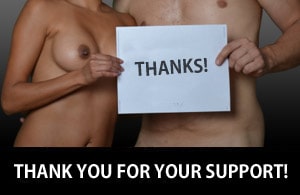Let's try to separate two things.
First thing: Labels for sexual episodes.
The OP began by talking about the label applied to a particular sexual encounter, specifically references by mostly straight-identified, bi-curious, etc. men to having "bi" sex, by which they mean sex with men. And yes, this gets said a lot. I notice it, and share the OP's sense that there's something a little off about it.
Second thing: Labels for people.
A person may identify - label - themselves pretty much as they want, which is why the LBT--etc list of initials keeps getting longer.
I identify as gay because I'm married to a man, in a committed relationship, and because I move socially in the gay community. I suppose in a clinical sense I'm bi, but to say so would make it seem as if I were looking for sex with women, which I am not. (Note the "committed relationship" bit, above.) If I were to have sex with a man, that would be gay (or to be really careful, homosexual) sex. If I were to have sex with a woman, that would be straight (or to be really careful, heterosexual) sex. And the same exact thing is true for a person who labels themselves as straight, or bi, or whatever. Whenever two conventionally gendered beings have sex, it's either heterosexual or homosexual, in common English straight or gay. Period. There really isn't such a thing as bi sex between two such people.
So when a guy talks about having "bi" sex, meaning sex with another guy, yeah, he's dodging the use of the words "gay" and "homosexual," and gay guys really notice the evasion.
No, it doesn't. Labels applied to people are never absolute, because people are more complicated than any label can ever pin down: a vegetarian can eat meat, a Catholic can use birth control, a pacifist can hit somebody, a straight person can have a same-sex encounter, a Republican can vote for a Democrat. But all those labels may still be the best fit for the people involved.
If a lifelong Vegetarian succumbs to temptation and eats a hamburger does that mean he must now call himself a Carnivore?
It depends on whether or not the carrot salad was actually sausage.
The post isn't about the statistical outliers nor one person. Individuals can and do call themselves anything they please.
I second this. A bi man sometimes has straight sex and sometimes gay sex. Bi sex is a term which allows the bi man to not label himself gay.Few things.1) why should a bi man label himself gay? If he is bi he isnt gay any more than he is straight. Dont like a tendency among some of the gay community to say a bisexual is someone who hasnt got the courage to admit they are gay. If you want respect for your sexuality then respect other peoples.2) if a person, of either sex, is in a group sex scenario and actively engaged with members if different sexes at the same time then what is that?3) does it really matter? Why the obsession with labels and the minute detail of whether they are right or not. Someone is having sex with someone else. Leave it at that.
That's 100% not what was said. The issue is about the way bisexual is defined as heterosexual when it's mf and bisexual when it's mm or ff. You don't see that as avoiding the same sex aspect just a touch?
And again this isn't about one person not intended to refer to one person nor should it be taken as such. You start off discussing sexuality in general then go back to 'it's nobody's business'. Of course. I can talk about dogs without meaning that Irish setter named Toby. So can we talk of language without meaning one specific Person.
I call myself gay have had relationships with men and women and am slightly on the genderfluid side. My labels don't match. But I don't call sex with women gay sex or sex with men straight sex or either bi sex. Not here but in a bbs i am on there was a serious discussion about how gay men were growing beards to trick straight men into gay sex instead of straight sex with other straight men. Absolutely ridiculous. It's ok to have same sex attraction and when two dudes go at it they are getting the homosexual on. If they want to call it something else, fine. But it's avoiding the obvious.



